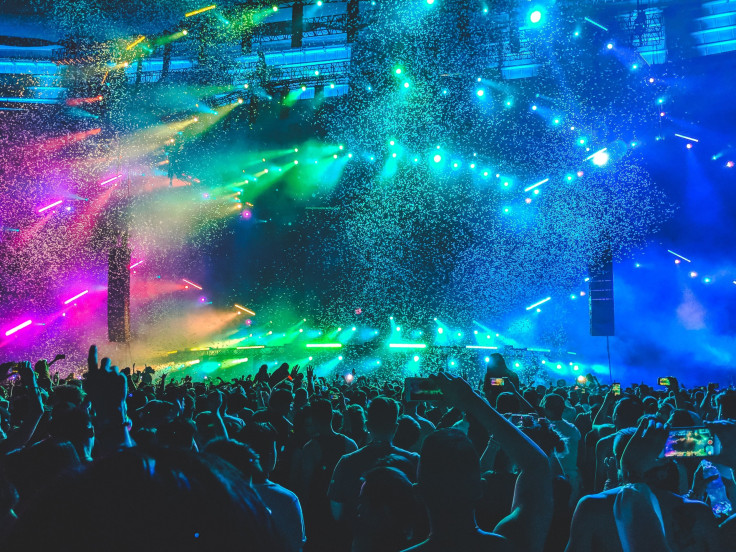Social Restriction's Effects on Live Entertainment
The impacts of COVID-19 on society are highly unpredictable. Even as the world’s embracing the so-called new normal, nobody can precisely tell when society will return to life before the pandemic. The concern has always been public safety; therefore, social restrictions are eradicated to minimize the spread of coronavirus.
The venue-based companies, such as museums, live music, cinema, casino, etc., are the hardest hit by the social restriction directives. In response to the public safety concerns and social distancing measures, those companies have limited most of their operation and shifted their focus on protecting employees and flattening the curve. The sudden drop in revenues puts those companies at unprecedented risks.
Some companies, however, have adapted to the situation and found a solution to keep thriving. The whole casino business, for instance, still finds a breath of fresh air from their online platforms. Online casino affiliate platforms, like smartcasinoguide, have profited from the increased demand for online gaming that can be done anywhere and anytime. Meanwhile, live music and some other live entertainment have been in close relation with online streaming platforms to host online shows.

The Short-Term Effect For The Venue-Based, Live Entertainment Industry
Live entertainment industries have survived similar issues as today several times in recent decades. In the United States, similar restrictive measurements were taken in the aftermath of 9/11 a few years back. In other parts of the world, the industries had to adapt during the 2003 SARS outbreak. Some others have survived the local crises in their part of the world. However, none of them is on the same scale as the COVID-19 pandemic, at least, in the last century.
The immediate effect of this crisis is the waves of reduced wages and unemployment, as the industries had to cut costs in order to keep afloat. The social restrictions affected international and domestic tourism, which will consequently affect the live entertainment industry because they are usually correlated. Venue-based industry indeed suffered the most; yet, another side of industry rises during the same crisis.
The Rise Of The Online Era
Social restriction directives have limited public mobility in person, especially during the lockdown period in several countries. For some period of time, most people are home-bound. Yet, this does not limit people’s mobility online. The internet is up and running as it opens up the door for the emergence of online innovation.
Digitalization makes way for unlimited connection and other technologies, like VR, to thrive in the days of social restrictions. With the social distancing measures and the lockdown, many live entertainment operators shifted their venue-based content online. Those who already got some content that is already on the web promoted it on a completely different level.
The internet has made it possible for those sides of the industry to keep afloat during the pandemic, regardless of the social restrictions. Take casino industries for example. While the industry sunk by minus 30% globally, their online counterparts observed a sudden rise in revenue. In the US, the use of online poker sites increased by 43% by the end of 2020. Accordingly, the number of first-time online poker players has increased by 255% on regular basis. This is more than evidence that the online gambling industry is the biggest winner during the pandemic.
On the other side of the live entertainment industry, live music has also found something to cherish upon in the form of “ quarantine concerts.” While social restrictions did not allow public crowds like music concerts, these online concerts keep live music alive as venues remain closed. The demand for live music is still high even during the pandemic, therefore, musicians and industry leaders start finding ways to perform live using the internet technology.
Some musicians take social media platforms, like Instagram, to perform. For instance, John Legend used the “live” feature of Instagram to play fans’ favorite songs. Seasoned musician, Elton John, embraced the iHeartRadio streaming platform to host online concerts with Billie Eilish, Dave Grohl, and Billie Joe Armstrong, who perform from their own homes.
The Key Takeaway From Social Restrictions’ Impacts
Nobody knows how long the pandemic and the social restrictions measure will keep affecting the live entertainment industry. It is also unknown how eager people will be to attend live entertainment after the pandemic. Until then, this industry will keep learning to survive the crisis with any available resource.
Online industries will keep thriving in this period of time and, possibly, in the aftermath of it. The convenience of having everything live and ready at the fingertip will likely keep it at the top of the market. Online casinos, online music, and virtual realities might still be the go-to experience for most people craving for live entertainment, at least until the social restriction’s measures are lifted.
Industries are reaching out more to audiences more than they have before. This type of communication will be common in this period of time. Live entertainment industries need audiences to keep things going; therefore, the industry has adopted a more engaging, customer-oriented approach. This has become more critical during the pandemic knowing that those companies are going to relaunch at the same time when the pandemic is declared over. Connecting the companies with the audiences helps them to grab their attention and appetite for live entertainment as soon as the social restriction measures are lifted.
These are the key takeaways from social restrictions. Digitalization of assets, the innovation of online technologies, and customer-oriented communication will be the new face of live entertainment industries during the pandemic.





















